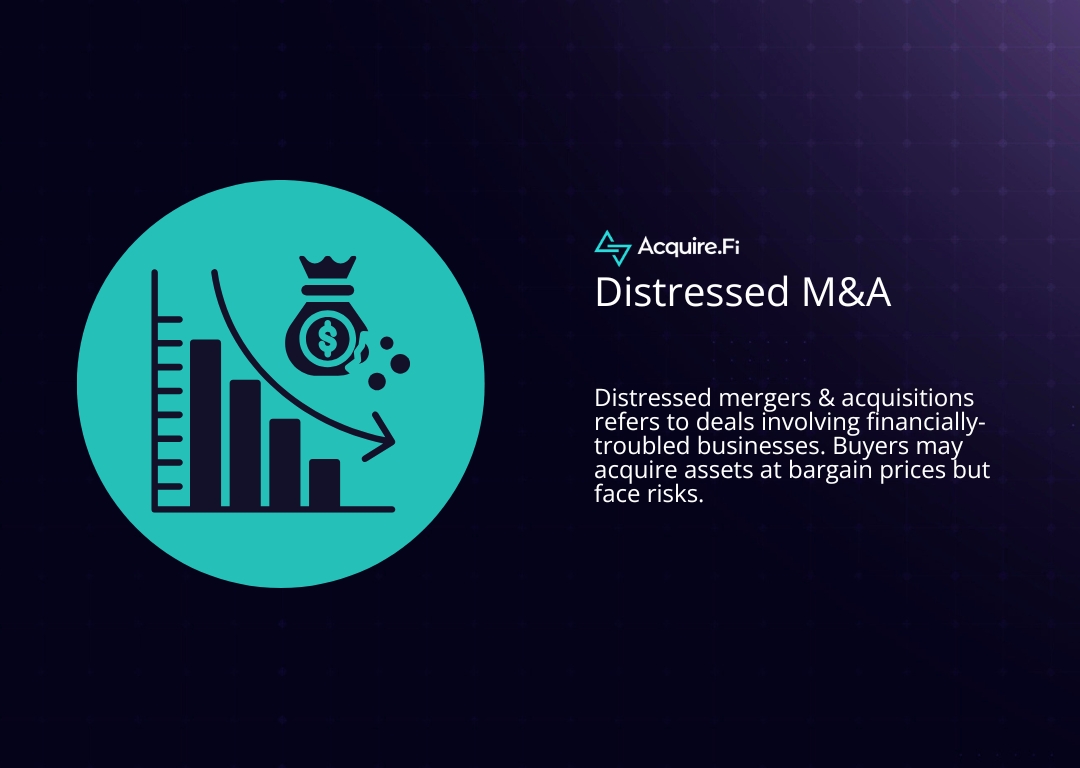Hedge Fund Reporting Requirements
Hedge funds are becoming an increasingly popular investment option, but with that popularity comes an increased need for regulation and oversight. Hedge funds are required to file reports with regulatory bodies, and it is important for investors to understand these reporting requirements. This article aims to clarify the importance of hedge fund reporting, the key requirements, and the roles of regulatory bodies.
The Importance of Hedge Fund Reporting
Hedge fund reporting is a critical component of the investment industry. It provides investors with transparency into the inner workings of the fund, promotes accountability, and fosters investor confidence and trust. But what exactly is hedge fund reporting, and why is it so important?
At its most basic level, hedge fund reporting involves the regular disclosure of information about the fund's performance, risks, strategy, and operations. This information is typically provided to investors and regulatory bodies, and it helps to ensure that the fund is being operated legally, ethically, and in the best interests of its investors.
Transparency and Accountability
One of the key benefits of hedge fund reporting is that it provides transparency into the inner workings of the fund. This includes information about the fund's asset allocation, performance, and other key metrics. By providing this information, hedge fund managers can demonstrate that they are operating in a transparent and accountable manner.
Transparency and accountability are crucial for maintaining investor confidence and trust. When investors have access to relevant and accurate information about the fund's performance and operations, they are better able to make informed investment decisions. This, in turn, helps to promote integrity and good governance within the industry.
Investor Confidence and Trust
Investors need to trust that their investments are being properly managed and that the fund is being operated legally and ethically. Hedge fund reporting helps to foster investor confidence by providing relevant, accurate information about the fund's performance, risks, strategy, and operations.
When investors have access to this information, they are better able to evaluate the fund's potential risks and rewards. This, in turn, helps to build trust between the fund and its investors, which is critical for long-term success.
Regulatory Compliance
Hedge funds are subject to various regulations, and failure to comply with these regulations can have severe consequences. Reports must be filed with regulatory bodies to demonstrate compliance and avoid penalties.
By providing regular reports to regulatory bodies, hedge fund managers can demonstrate that they are operating in compliance with relevant laws and regulations. This helps to protect the interests of investors and promotes a level playing field within the industry.
In conclusion, hedge fund reporting is a critical component of the investment industry. It provides transparency, promotes accountability, fosters investor confidence and trust, and ensures regulatory compliance. By providing relevant and accurate information about the fund's operations, hedge fund managers can build trust with investors and promote long-term success.
Key Hedge Fund Reporting Requirements
Hedge funds are investment vehicles that pool together funds from high net worth individuals, institutional investors, and other qualified investors to invest in a variety of assets. Hedge funds are known for their flexibility and ability to use a range of investment strategies to achieve their investment objectives. However, due to their complexity and potential risks, hedge funds are subject to a range of regulatory requirements.
Form PF
Form PF is a report that must be filed with the Securities and Exchange Commission (SEC) by most hedge funds that have assets under management (AUM) of at least $150 million. The report provides information about the fund's strategy, performance, leverage, and risk exposure. Form PF is filed periodically, with the frequency depending on the size and complexity of the fund.
Form PF is an important tool for regulators to monitor systemic risks in the financial system. By collecting information about hedge fund activities, regulators can identify potential risks and take appropriate actions to mitigate them. For hedge fund managers, Form PF provides an opportunity to review their investment strategies and risk management practices, and make adjustments as necessary.
Form ADV
Form ADV is a report filed with the SEC by registered investment advisors, including hedge fund managers. The report provides information about the advisor's business practices, fees, and conflicts of interest. Form ADV is filed annually and is publicly available, providing transparency to investors and regulators.
Form ADV is an important tool for investors to evaluate the performance and practices of hedge fund managers. By reviewing Form ADV, investors can assess the risks associated with investing in a particular hedge fund, as well as the fees and expenses associated with the investment.
Financial Statements
Financial statements provide information about a fund's financial performance, including revenue, expenses, assets, and liabilities. Funds must prepare and file financial statements with regulatory bodies, including the SEC, as well as provide them to investors. The frequency of filing depends on the size and complexity of the fund.
Financial statements are an important tool for investors to evaluate the financial health of a hedge fund. By reviewing financial statements, investors can assess the fund's profitability, liquidity, and solvency, as well as its ability to meet its financial obligations.
Schedule K-1
Schedule K-1 is a tax form that must be provided to investors in hedge funds. The form provides information about the investor's share of the fund's income, deductions, and credits. Schedule K-1 is filed annually and is used by investors to prepare their own tax returns.
Schedule K-1 is an important tool for investors to manage their tax liabilities. By providing information about the fund's income and deductions, investors can accurately report their share of the fund's income on their tax returns.
FATCA and CRS Reporting
The Foreign Account Tax Compliance Act (FATCA) and the Common Reporting Standard (CRS) are regulations designed to prevent tax evasion. Hedge funds must comply with these regulations by identifying and reporting certain account holders to regulatory bodies. Compliance with FATCA and CRS is an ongoing process, with reporting requirements varying by jurisdiction.
FATCA and CRS reporting is an important tool for regulators to prevent tax evasion and ensure compliance with tax laws. By requiring hedge funds to identify and report certain account holders, regulators can prevent the use of offshore accounts for illegal activities.
Regulatory Bodies and Their Roles
Hedge funds are investment vehicles that are typically open only to accredited investors and institutional investors. While they offer the potential for high returns, they also involve significant risks. As a result, hedge funds are subject to strict regulations and oversight by various regulatory bodies. Here is a closer look at some of these regulatory bodies and their roles.
Securities and Exchange Commission (SEC)
The Securities and Exchange Commission (SEC) is the main regulatory body overseeing hedge funds in the United States. The SEC requires hedge funds to register as investment advisors and file various reports, including Form PF and Form ADV. These reports provide detailed information about the fund's investment strategy, performance, and risk profile. The SEC also investigates and enforces securities laws, including those related to hedge funds.
One of the key roles of the SEC is to protect investors. By requiring hedge funds to register and file reports, the SEC helps to promote transparency and accountability. This allows investors to make informed decisions about their investments and helps to prevent fraud and other abuses.
Commodity Futures Trading Commission (CFTC)
The Commodity Futures Trading Commission (CFTC) is responsible for overseeing derivatives markets and enforcing commodities laws. Many hedge funds engage in derivatives trading, making the CFTC an important regulatory body for the hedge fund industry.
The CFTC's role is to ensure that derivatives markets are fair, transparent, and free from manipulation. This helps to protect investors and promote market stability. The CFTC also has the power to investigate and prosecute violations of commodities laws, including those related to hedge funds.
Financial Industry Regulatory Authority (FINRA)
The Financial Industry Regulatory Authority (FINRA) is a self-regulatory organization that oversees broker-dealers and their activities. Hedge funds often rely on broker-dealers to execute trades, making compliance with FINRA regulations important for hedge fund managers.
FINRA's role is to protect investors by ensuring that broker-dealers operate fairly and transparently. This includes conducting regular inspections and audits of broker-dealers, as well as investigating and prosecuting violations of FINRA regulations.
National Futures Association (NFA)
The National Futures Association (NFA) is a self-regulatory organization that oversees futures markets. Many hedge funds engage in futures trading, making compliance with NFA regulations important for hedge fund managers.
The NFA's role is to ensure that futures markets are fair, transparent, and free from manipulation. This helps to protect investors and promote market stability. The NFA also has the power to investigate and prosecute violations of futures laws, including those related to hedge funds.
Understanding hedge fund reporting requirements is critical for investors and fund managers alike. Compliance with regulations helps to promote transparency, accountability, and investor confidence, while also protecting the interests of all stakeholders. By being aware of the key reporting requirements and the roles of regulatory bodies, investors can make informed decisions about their investments, and hedge fund managers can ensure compliance and avoid penalties.
In conclusion, regulatory bodies play a crucial role in overseeing hedge funds and protecting investors. By promoting transparency, accountability, and market stability, they help to ensure that hedge funds operate fairly and ethically. As the hedge fund industry continues to evolve, it is likely that regulatory bodies will play an increasingly important role in shaping its future.














.webp)